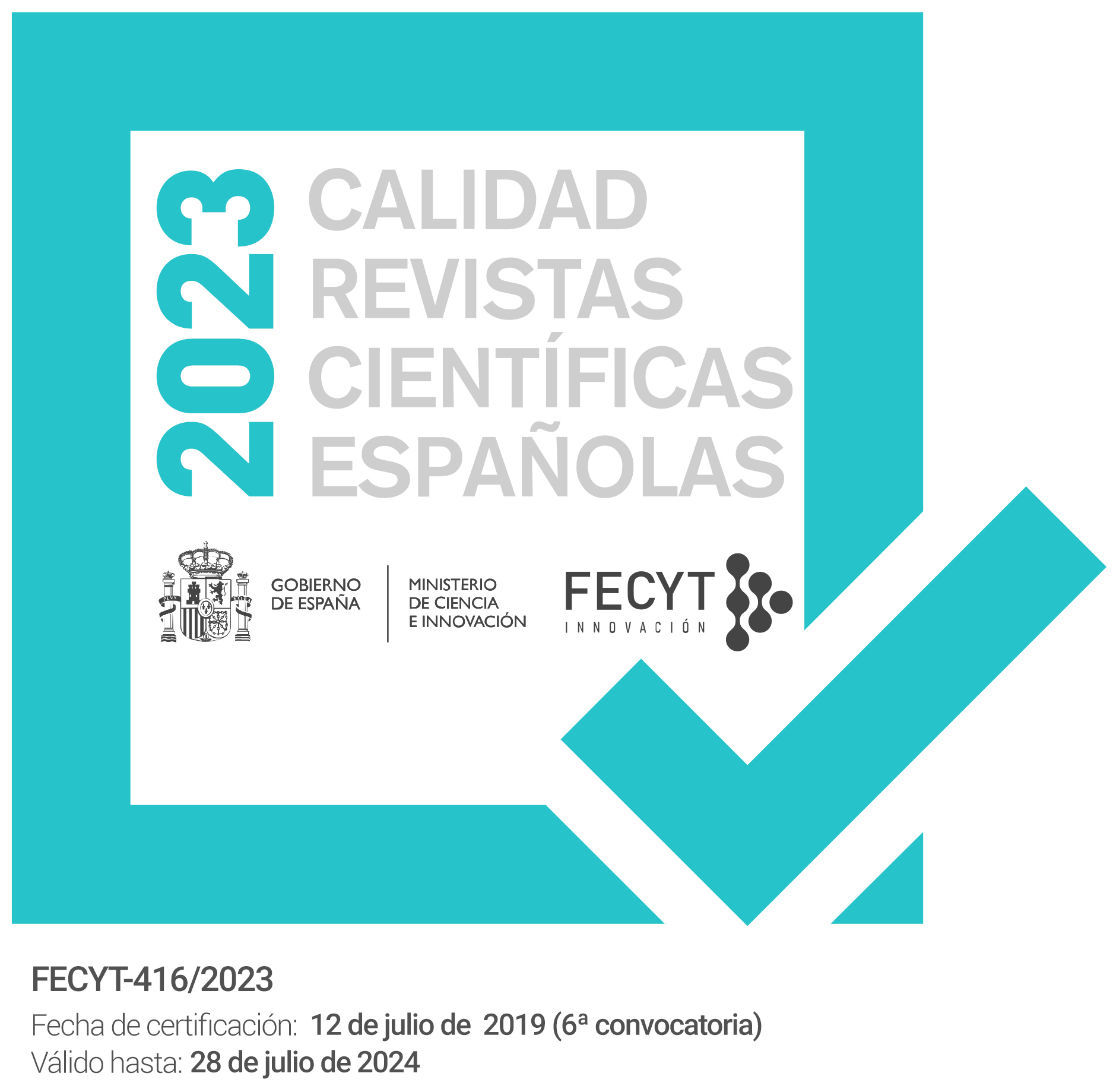Antropocalipsis. Sobre el fin de la Historia como fin del hombre / Anthropocalypsis. The End of History as End of the Man
Keywords:
Antropología Apocalipsis, Humanismo, Posthumanismo, Filosofía de la historia, Anthropology, Apocalypse, Humanism, Posthumanism, Philosophy of HistoryAbstract
El presente artículo aborda la cuestión del Apocalipsis entendido como fin de la idea de «Hombre». En la filosofía del siglo xx se ha dado un interés especial por abordar la disolución de las categorías humanistas que sostenían nuestra visión del mundo, véase: la idea de hombre, sujeto, historia, etc. A partir de un análisis etimológico y conceptual sobre la construcción de la idea de anthropos en el desarrollo humanista occidental, veremos cómo en la tradición filosófica el hombre ha sido concebido como un ser escindido en dos dimensiones contrapuestas que, en el decurso histórico, tratará de reunir. En el tercer capítulo trataremos de ir más allá de lo que denominamos como «antropocalipsis» reelaborando algunas teorías de lo posthumano que nos permitan seguir viviendo más allá del fin.
This article explores the notion of “apocalypse” understood as the end of the idea of “man”. Throughout the twentieth century, many philosophers have focused on the diminishing importance of the humanistic categories that have framed our view of the world: “man”, “subject”, “history”, etc. We propose a conceptual and etymological analysis of how the idea of anthropos was constructed during the development of Western humanism. Our aim is to elucidate how the philosophical tradition has portrayed man as a divided being, with two opposing dimensions requiring reconciliation. We then delve into the implications of what we term the “anthropocalypse”, offering a reinterpretation of several posthumanist theories that might allow us to live on beyond the “end”.
Downloads
References
Anders, G. (2011): La obsolescencia del hombre. Vol. I. Sobre el alma en la época de la segunda revolución industrial, Editorial Pre-textos, Valencia.
Barcellona, P. Ciaramelli, F. Fai, R., coords. (2007): Apocalisse e post-umano. Il crepuscolo della modernità, Dedalo, Bari.
Bloch, E. (2007): El Principio Esperanza, vol. I, Trotta, Madrid.
Bauman, Z. (1993): Le sfide dell’etica, Feltrinelli, Milano.
Bultmann, R. (1974): Historia y Escatología, Studium, Madrid.
Caffo, L. (2016): Del destino umano. Nietsche e i quattro errori dell’umanità, Piano B, Prato.
Caffo, L.; Marchesini, R. (2014): Così parlò il postumano, Novalogos, Aprilia.
Cimatti, F. (2013): Filosofia dell’animalità, Laterza, Roma-Bari.
Deitch, J. (1992) Post Human, Idea Books, Amsterdam.
Derrida, J. (2006): L’animale che dunque sono, Jaca Book, Milano.
Derrida, J. (2012): Espectros de Marx: el Estado de la Deuda, el trabajo del duelo, y la nueva Internacional, Trotta, Madrid.
Ferrando, F. (2013): «Posthumanism, Transhumanism, Antihumanism, Metahumanism, and New Materialisms: Differences and Relations», Existenz 8 (2): 26-32.
Ferrando, F. (2016): Il postumanesimo filosofico e le sue alterità, ETS, Pisa.
Ferraris, M. (2010): Ricostruire la decostruzione. Cinque saggi a partire da Jacques Derrida, Bompiani, Milano.
Foucault, M. (1968): Las palabras y las cosas. Una arqueologia de las ciencias humana, Siglo xxi, México.
Leclerc, G.; Buffon, L. (1753): «Homo duplex, en Discours sur la nature des animaux», en Histoire naturelle, générale et particuliére, Tome IV, Sanson & Compaigne, Deux-Ponts.
Natoli, S. (2015): L’edificazione di sé. Istruzioni sulla vita interiore, Laterza, Roma-Bari.
Nietzsche, F. (1965): La Gaia scienza e idilli di Messina, Adelphi, Milano.
Nietzsche, F. (2003): Segunda Consideración Intempestiva: Sobre la utilidad y el perjucio de la historia para la vida, trad. de German Cano, Biblioteca Nueva, Madrid.
Nietzsche, F. (2011): Così parlò Zarathustra. Un libro per tutti e per nessuno, Adelphi, Milano.
Paoletti, G., coord. (2004): Homo Duplex. Filosofia e esperienza della dualitá, ETS, Pisa.
Pico della Mirandola, G. (2004): Discurso sobre la dignidad del hombre, traducción de Adolfo Ruiz Díaz, UNAM, México.
Royo Hernández, S. (2012): Pasajes al posthumanismo: Historia y Escritura, Dykinson, Madrid.
Rametta, V. (2016): Icone della dissolvenza. Una teoria delle apocalissi culturali nell’era del capitalismo digitale, Tesis doctoral, Universitá degli studi di Palermo, Palermo.
Scherpe, K. (1986): «Dramatization and De-Dramatization of “The End”: The Apocalyptic Consciousness of Modernity and Post-Modernity», Cultural Critique 5: 95–129.
Sloterdijk, P. (2008): Normas para el parque humano, Siruela, Madrid.
Terenzio, P. A. (2001): Punitore di se stesso, tr. de G. Gazzola, Bur, Milano.
Downloads
Issue
Section
License
The articles are open access distributed under the terms of the Creative Commons Attribution-NonCommercial-NoDerivatives (CC BY-NC-ND) Spain 4.0 license. Authors who publish in this journal agree with the following terms:
a) Authors retain the copyright and guarantee the journal the right to be the first publication of the work as well as licensed under a Creative Commons Attribution License that allows others to share the work with a recognition of the authorship of the work and the Initial publication in this magazine.
b) Authors may separately establish additional agreements for the non-exclusive distribution of the version of the work published in the journal (for example, place it in an institutional repository or publish it in a book), with recognition of its initial publication in this magazine.
c) Authors are allowed and encouraged to disseminate their work electronically (for example, in institutional repositories or on their own website) before and during the submission process, as it may result in productive exchanges, as well as a earliest and largest citation of published works (See The Effect of Open Access).



